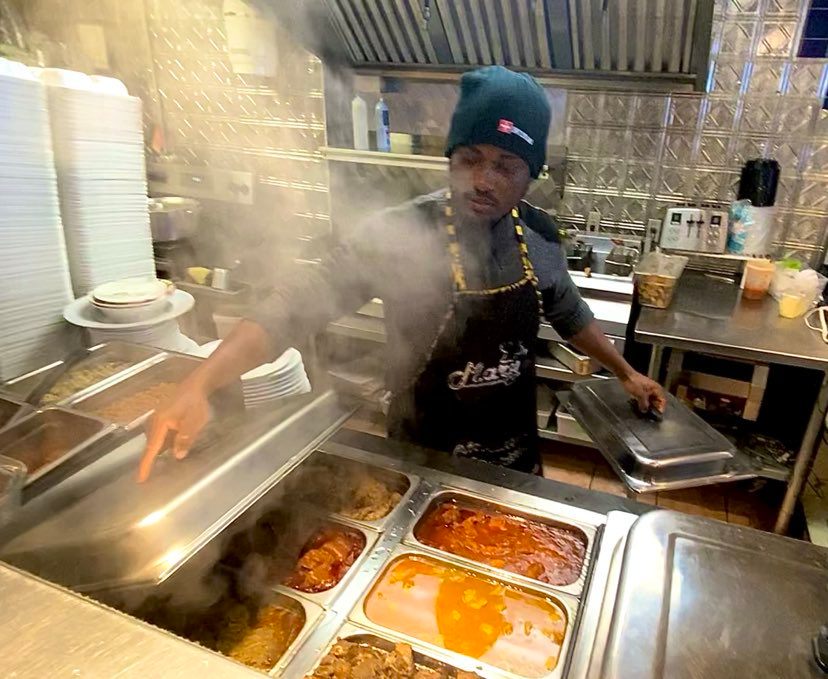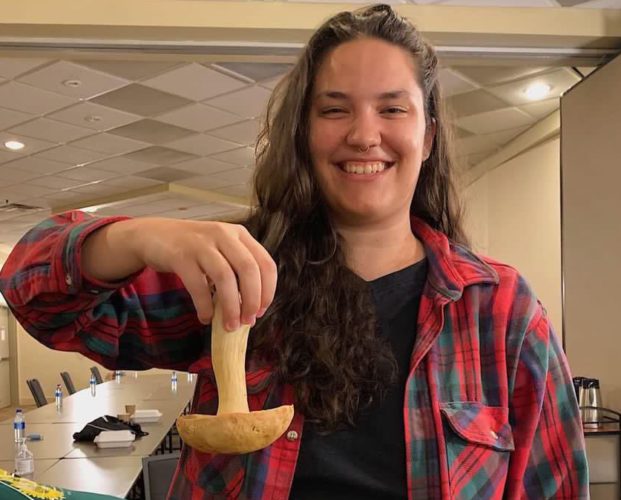Searching for culturally appropriate food amid rising costs
Inflation makes it tougher for racialized people to find affordable sources of protein

caption
A cook works in the kitchen at Mary’s African Cuisine in Halifax.Finding sources of protein is a priority even as the cost of food rises, says registered dietitian Jamie Lee.
Eating food with higher protein “keeps us fuller for longer,” said Lee, based in Montreal, adding people need it to maintain muscle mass.
Inadequate protein intake means “they can be more prone to injuries,” said Lee. In addition, “if it doesn’t meet their body’s needs it can lead to disordered eating behaviour.”
Canadians can expect food prices to rise by five to seven per cent this year, according to Canada’s Food Price Report, affecting the prices of meat, dairy and vegetables.
This issue directly impacts communities of colour — what happens when they can no longer buy culturally appropriate sources of food with higher protein?
Lee said finding affordable food that assimilates to different cultures can often be a challenge.
“We don’t want people changing their traditional diets,” said Lee.
Plant-based
Kassidy Bernard identifies as L’nu two-spirit from We’koqma’q First Nation and describes a nutritious meal as one that feels good and is filling.
Bernard’s diet is vegan. At the grocery store, Bernard mostly looks for beans, tofu and fresh produce. But obtaining nutritional food is becoming more expensive.
“The majority of produce has fluctuated a lot,” said Bernard. “It’s a little more expensive to get fresh food so I tend to go for frozen vegetables.”
Bernard, 25, is gathering food outdoors.
“I got into mushroom foraging in the last few years, so I am learning how to forage that just in my backyard which is in the woods — a lot of it is medicinal mushrooms,” said Bernard.
Some of the mushrooms Bernard harvests include chaga and birch polypore mushrooms. Bernard said this practice feels far more spiritual than grocery shopping.
They said they hope to continue harvesting to eat more nutritiously, particularly with maple syrup season coming up.

caption
Kassidy Bernard holds a mushroom they harvestedBasics versus budget
Shahla Shamiun Tahia, 23, is a Halifax-based writer of Bangladeshi descent. She considers nutrition an art, describing South Asian staple lentil dishes “like dhal, beautiful.”
Tahia said for her family in Bangladesh, the main sources of protein are chicken and lamb.
A healthy meal for Tahia includes rice, spinach and protein such as fish curry or chicken curry.
With food costing more, Tahia said she worries about having to eat pre-packaged, processed instant food instead of cooking culturally appropriate meals.
“It’s food for everybody, everywhere. It’s really special and really difficult to capture through English,” said Tahia.
Businesses feeling the pinch
Adjustments to meals are also being made by Mary Nkrumah. She owns Mary’s African Cuisine on Barrington Street and said all restaurants are affected by food pricing.
In her case, increased costs mean she’s either removing items from the menu or bumping the price. “The majority of customers do understand when they come, and the price has been a bit raised,” said Nkrumah.
“I kept my prices for a long time. I have customers who understand it but sometimes others look at you like you are ripping them off.”
Many Ghanaian vegetarian dishes have become more popular, she said. They’re $2-$5 less than oxtail, goat, chicken and lamb menu options.
For Michael Toker, the Turkish owner of Smyrna on Dresden Row, the main priority is being able to afford fresh seafood — culturally, it’s the most common way to consume protein in Mediterranean countries, he said.
Although prices continue going up, Toker said he hopes to keep providing clients with the freshest ingredients for salads and seafood prepared on the grill.
“What makes Mediterranean food different from other types of food is that ours is healthy, not deep fried,” said Toker.
About the author
Natalia Tola
Natalia Tola was born and raised Ecuador. She is pursuing a four year Bachelor of Journalism (Honours) with a minor in Contemporary Studies....
